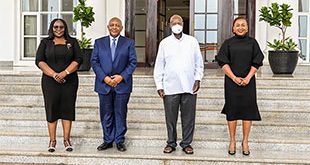
The surprising election of Pope Leo XIV, the first American pontiff, is probably a sign that his predecessor’s spirit will prevail
ANALYSIS | IAN BURUMA | Some popes fit their times to perfection. Pope John XXIII was a progressive pope whose Vatican II reforms occurred just as The Beatles were setting the world alight. John Paul II was exactly the right man to nudge the crumbling Soviet Empire to its demise. The big question when the Conclave to choose Pope Francis’s successor began was whether the next pope would be a reactionary figure to match the right-wing populist mood of our Trumpian era?
We now know that this is unlikely. The surprising election of Pope Leo XIV is probably a sign that his predecessor’s spirit will prevail. But some active right-wing Catholic lobbyists have done their best to push back against the most progressive stances of the last pope; his tolerance of homosexuality, his care for the poor, his concerns about climate change, and not least, his opposition to some of Donald Trump’s policies. Many of these lobbyists are Americans, and most support Trump. These so-called MAGA Catholics are well-connected and well-financed.
These well-connected and well-financed MAGA Catholics include Steve Bannon, Trump’s former adviser and a powerful far-right media figure. Bannon denounced Francis as an anti-American Marxist who would “burn in hell” for allowing the ruling Communist Party some control over the church in China, and rebuked him for his compassionate response to migration. Roger Stone, another radical Catholic in Trump’s orbit (and, like Bannon, a convicted felon), declared on X that Francis’s papacy was “never legitimate.” He, too, believes that “it’s warm where [Francis] is right now.”
What happened to American Catholics, who were once regarded as a relatively liberal Christian community? In 1960, nearly 80% of Catholics voted for John F. Kennedy not just because he would be the first Catholic president of the United States, but also because they liked his politics. Some evangelical Protestants, on the other hand, regarded him as the Antichrist. In 2020, only 49% of Catholics voted for Joe Biden, a far more devout Catholic than JFK was.
Of course, there is no such thing as a “Catholic vote,” any more than there is a “Jewish vote.” Any religion’s adherents tend to divide into conservative and liberal camps. But there has been a remarkable shift toward more radical right-wing politics among many American Catholics.
This trend is partly a response to a decades-long decline in organized religion in the US. Fewer young people are interested in becoming Catholic priests, and those who do are more conservative. According to a report by researchers at the Catholic University of America, 68% of priests ordained between 1965 and 1969 regarded themselves as somewhat or very “theologically progressive.” Today, nearly 85% of newly ordained priests claim they are “conservative” or even “very conservative.”
Race and class
But there are other reasons, too, mainly related to race and class. The Democrats used to rely on the votes of less-educated white Christians, especially in the southern states. Despite being culturally conservative, they supported socially progressive economic policies that were in their interests.
Then came the 1960s, with Vatican II, sex, drugs, and – perhaps most importantly – civil rights for Black Americans. Many Catholics, as well as evangelical Christians, defected to the Republicans, who promised a cultural and social counter-revolution: law and order, family values, and – in veiled terms – the maintenance of white supremacy. This drew them into Richard Nixon’s “silent majority” toward the end of that decade, and in even larger numbers to Trump’s MAGA movement roughly a half-century later. The Catholics who voted for Trump in 2024 were largely white, while those who voted against him were Black or Hispanic.
Again, these divisions are not absolute. There are still progressive American Catholics, including prominent cardinals and bishops. But the increasing influence of Catholic public figures who want to reverse the social and cultural changes of the last century is striking. Bannon and Stone are only the most vulgar examples. Five US Supreme Court justices are also conservative Catholics, as is Vice President J.D. Vance, who converted in 2019. Another prominent Catholic, William Barr, Trump’s attorney general in his first term, described secularism as a “social pathology” that aimed to “destroy the traditional moral order.”
Evangelicals and Catholics
The Christian counter-revolution is partly driven by theology. Catholics care deeply about abortion because of their belief that human life begins at conception. Evangelicals used to care less about this, before joining forces with Catholics over the question of government support for religious schools. Anti-abortion was the ideological cause, but the politics revolved around the use of federal funding.
Equally important, evangelicals and Catholic conservatives have increasingly found common ground in the culture wars that have raged since Nixon’s 1969 appeal to the silent majority. On one side are the mostly well-educated, often secular, urban liberals who are open to heterodox views about sexual mores, immigration, and gender preferences, but vigilant about racism, sexism, homophobia, and xenophobia. On the other side are less-educated provincial and rural Americans who believe in church, a biological definition of gender, and the right to bear arms. They see anti-racism as a threat to their social position, and are generally unbothered by the issues that rile the liberals.
This division is largely a matter of class, as Barack Obama suggested during his 2008 presidential campaign, when he disparaged working-class voters in former industrial areas as people who “cling to their guns or religion.” Hillary Clinton made things worse in 2016 when she categorized half of Trump’s supporters as a “basket of deplorables.”
The connections made between different causes in the culture wars are not always logical, but that does not make them less powerful. In 2020, Trump – who is far from a devout Christian – claimed that Biden was “against God” and “against guns.” To an ultra-conservative culture warrior, the connection is clear: we love guns, so God must, too. That such warriors now include many Catholics is, well, deplorable.
*****
Ian Buruma is the author of numerous books, including Murder in Amsterdam: The Death of Theo Van Gogh and the Limits of Tolerance, Year Zero: A History of 1945 and A Tokyo Romance: A Memoir,
Source: Project Syndicate.
 The Independent Uganda: You get the Truth we Pay the Price
The Independent Uganda: You get the Truth we Pay the Price




